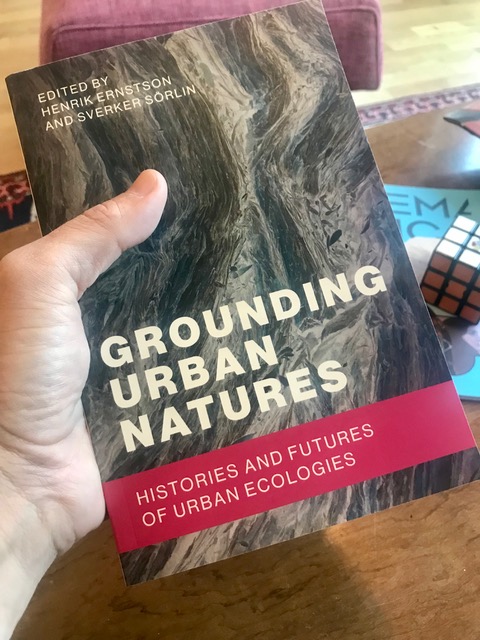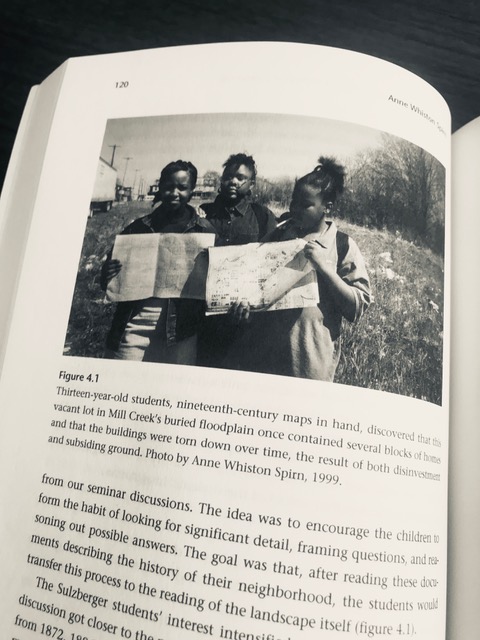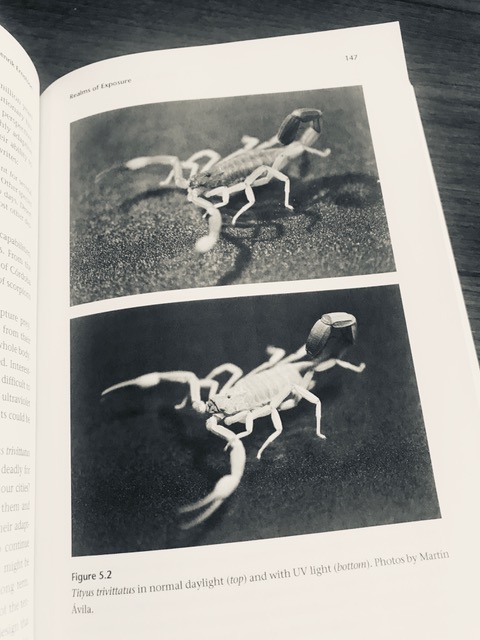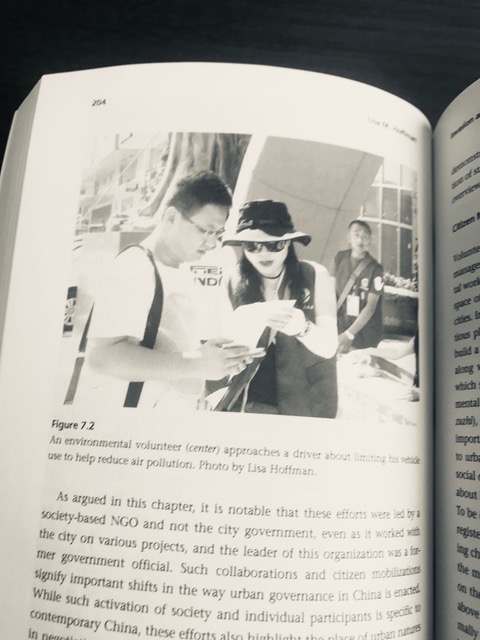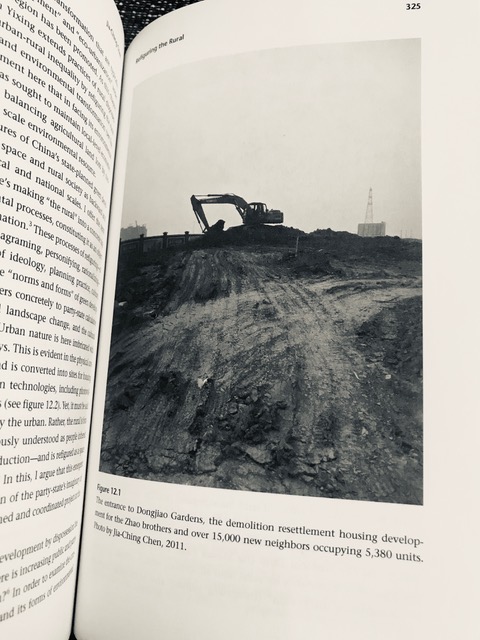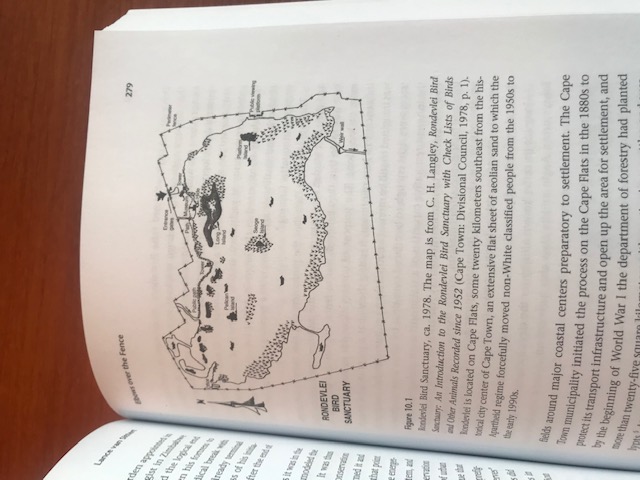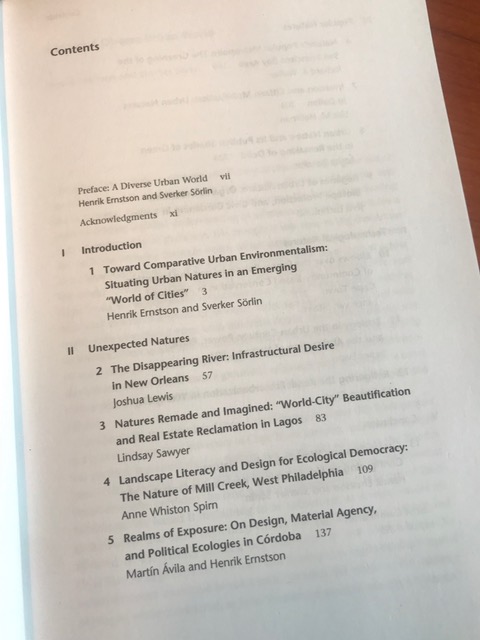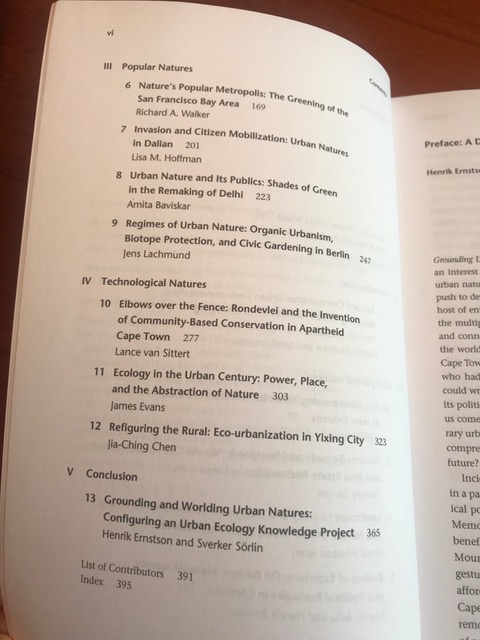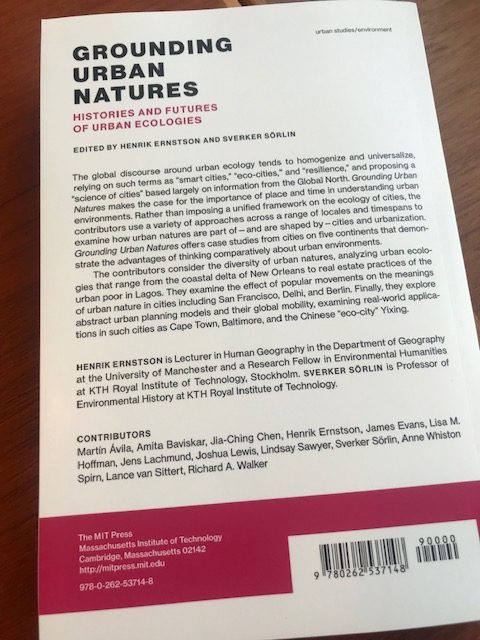We won the MIT Press Library Award! Our recently published edited book Grounding Urban Natures: Histories and Futures of Urban Ecologies (2019, MIT Press) can now be downloaded #OpenAccess as a searchable PDF from The MIT-Press website (press link above).
For colleagues with permanent jobs or research funding, consider to (also) buy the real and heavy book because its so nice!
The book provides well-written chapters on urban natures, their social lives, their vibrant matters, and their politics across a varied geography, from the global South to North. Bringing together ethnography and environmental history in a comparative gesture, the chapters are great to teach from as students can trust experienced scholars to unpack the multiplicity of urban nature in narrative form that is kept free from jargon. Let me know if you teach from it through my twitter handle @rhizomia (Henrik Ernstson).
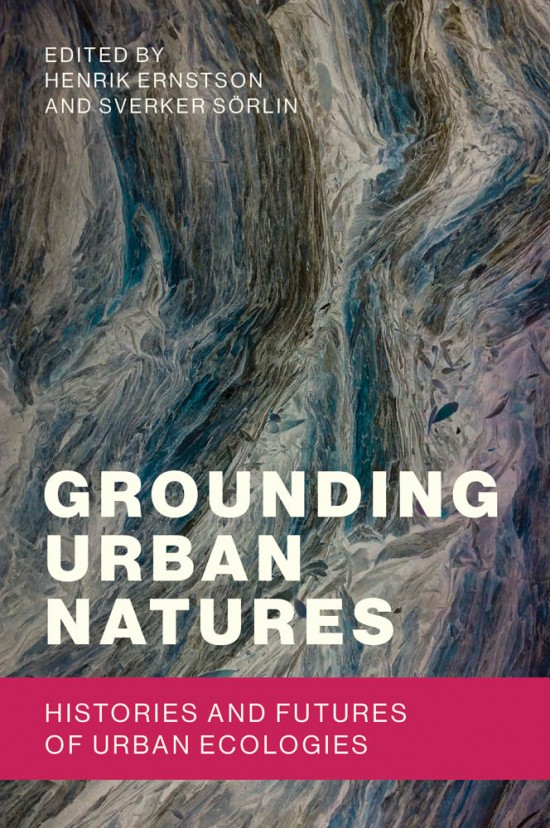
The chapters are made for teaching as they contain no jargon. They effectively open up urban natures from a multiple of perspectives, and bring case studies from across the world—from new emergent forms of urbanism of the global South, to re-worked cities in the global North. Students will have a wealth of experience to rely on as urban natures are shown to be shaped in sometimes unexpected ways through:
- a multiplicity of agencies;
- the role of historical changes, from colonisation to industrialisation;
- the impact of race and class structures—but also social movements;
- the circulation of ideas, from Confucianism to neoliberalism; and
- the heavy hand of expert models and engineering standards.
Constructive review of urban ecology as an interdisciplinary field from especially the 1990s onward is given in the Introduction. The shear explosion of exciting thinking that have emerged and pushed the humanities and the social and natural sciences to regard urban nature very differently today than simply 20 years back. The Introduction includes debates and tensions between different perspectives from socio-natures, more-than-human, urban political ecology, and social-ecological systems theory (including resilience), which is paired with a close reading of how postcolonial and Southern urbanism, which has grown strongly in urban studies in the last 15 years, can help to open up a space to think urban nature from a wider lens, from a “world of cities” (1).
The chapters are written by leading scholars in the field. This includes chapters from one of the true founders to think cities as socio-natures, Ann Whiston Spirn who wrote The Granite Garden-classic in 1984 and here contributes an intimate chapter on teaching high school kids about landscape literacy in Philadelphia and theorising democratic practices; to Lindsay Sawyer’s chapter on Lagosian’s mode of building auto constructed real-estate; to Martín Ávila (with Henrik Ernstson) on infrastructures and scorpions and the problem of co-habitation in Córdoba, Argentina; how a huge engineering lock made a river disappear in New Orleans by Joshua Lewis; “alien” plant clearing in Chinese Dalian by Lisa M Hoffman; Amita Baviskar on parks, forests and couples falling in love in New Delhi; and how Chinese “eco-cities” is linked to massive dispossession of farmers from their land in China by Jia-Ching Chen; and several more chapters from Richard A. Walker, Lance van Sittert, Jens Lachmund and James Evans.
Chapters are placed between an Introduction and Conclusion that provides historical background and theory from an expanding field. These chapters opens up a space to re-think urban environments from new locations. With rapid urbanisation and radically new ways through which urban natures are shaped across global South and North, we cannot trust old models nor unreflectively reproduce global models such as “eco-cities,” “smart cities,” “resilience cities,” or a new “science of cities” without paying attention to how place matters. Through a critique of how global discourse tend to homogenise and universalise how we think about cities, the Introduction and Conclusion opens a space to re-think our urban environmental crisis.
This book provides a step to gather a more inclusive and generous practice for thinking and formulating urban environmental policy and activism in the Urban Age of the 21st century. Drawing on the strong resurgence of Southern and postcolonial perspectives in urban studies, we as editors argue for a “comparative urban environmentalism” to create this space of critique and dialogue. The Introduction argues for combining the “wild” libraries of urban socio-nature from the 1990s onward, with postcolonial or “Southern urbanism” from urban studies, to invigorate thinking while decentering the global North as the locus of thought. This opens the global phenomena of rapid urbanisation and environmental crisis to be theorised from more places and disciplines. In the tradition of William Cronon’s edited volume Uncommon Ground, a truly eclectic and somewhat boistorous collection of writers, our “Grounding-book” offers a strong contribution to urban ecology, to environmental humanities, to political ecology, and to environmental thought more generally.
We hope you like it!
Published by MIT Press in their series on Urban and Industrial Environments in August 2019. Made Open Access through the MIT Press Library Award on 7 October 2019.
Contributors: Martín Ávila, Amita Baviskar, Jia-Ching Chen, Henrik Ernstson, James Evans, Lisa M. Hoffman, Jens Lachmund, Joshua Lewis, Lindsay Sawyer, Anne Whiston Spirn, Lance van Sittert, Richard A. Walker.
Editors: Henrik Ernstson and Sverker Sörlin.
(1) The expression is taken from Jennifer Robinson, a founding and generous sister of Southern urbanism. More on that in the Introduction.
